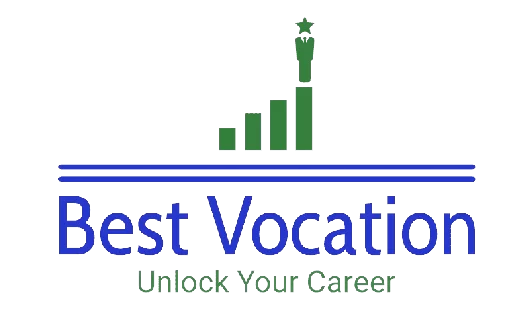Effective Skill Assessment In today’s rapidly evolving world, the pursuit of success hinges not only on talent but also on understanding and effectively leveraging one’s skills. As industries shift, the demand for versatile and skilled professionals continues to soar. Thus, recognizing and developing these abilities is paramount. This is where Effective Skill Assessment comes into play.
Skill assessment is the process of evaluating an individual’s capabilities and competencies in specific areas. By employing tailored assessment techniques, individuals and organizations can gain insights into strengths, weaknesses, and growth opportunities. This comprehensive guide explores the significance of skill assessment, various techniques, and how to implement them for optimal success. Let’s embark on this enlightening journey toward unlocking potential!

The Importance of Skill Assessment
Understanding the importance of Effective Skill Assessment is the first step toward unlocking success. Here are some compelling reasons to prioritize this practice:
1. Identifying Strengths and Weaknesses
Effective Skill Assessment allows individuals to gain clarity about their abilities. This awareness fosters personal growth and helps in crafting a development plan that highlights strengths while addressing weaknesses.
2. Guiding Career Development
For professionals seeking advancement, Effective Skill Assessment can illuminate potential career pathways. By identifying skills relevant to desired roles, individuals can tailor their development efforts to align with their ambitions.
3. Enhancing Team Performance
In organizational contexts, assessing the skills of team members can lead to optimized collaboration. Understanding each individual’s strengths enables better role allocation and fosters a more cohesive and efficient team dynamic.
4. Adapting to Industry Changes
As industries evolve, so do the skills required to thrive within them. Regular Effective Skill Assessment ensure that individuals remain relevant and adaptable, equipping them to navigate the challenges posed by technological advancements and shifting market demands.
5. Boosting Employee Engagement and Satisfaction
Employees who recognize their strengths and have a clear path for development tend to be more engaged and satisfied in their roles. This heightened engagement translates to improved productivity and retention rates.
Effective Skill Assessment Techniques
There is no one-size-fits-all approach to skill assessment. Different techniques serve varied purposes and cater to diverse contexts. Here are some Effective Skill Assessment techniques to consider:
1. Self-Assessment
Self-assessment empowers individuals to evaluate their skills independently. By reflecting on past experiences and competencies, individuals can gain valuable insights.
- Journaling: Maintaining a skills journal can facilitate regular reflection. Documenting achievements, challenges, and learning experiences helps in identifying patterns and growth areas.
- Skill Inventories: Creating a comprehensive list of skills, both hard and soft, enables individuals to visualize their capabilities. This method also aids in pinpointing areas that require further development.
2. Peer Assessment
Engaging peers in the assessment process can provide valuable external perspectives. Peer assessments foster collaboration and encourage constructive feedback.
- 360-Degree Feedback: This technique involves gathering feedback from various sources, including peers, supervisors, and subordinates. This holistic approach provides a well-rounded view of an individual’s skills and areas for improvement.
- Peer Reviews: Collaborating with colleagues to review each other’s work fosters a culture of constructive feedback. This method promotes open communication and enhances team dynamics.
3. Performance Evaluations
Performance evaluations conducted by supervisors or managers are formalized assessments that provide insights into an employee’s skills and contributions.
- Objective Metrics: Establishing clear performance metrics enables objective evaluations. These metrics can include sales figures, project completion rates, or customer satisfaction scores.
- Behavioral Assessments: Utilizing frameworks like the STAR (Situation, Task, Action, Result) method allows evaluators to assess skills based on specific scenarios. This approach provides context and depth to performance evaluations.
4. Skills Testing
Skills testing involves assessing individuals’ abilities through practical exercises or examinations. This method provides tangible evidence of competence.
- Technical Assessments: For technical roles, conducting assessments that require candidates to demonstrate specific skills can be highly effective. Coding tests, design challenges, or data analysis tasks can help evaluate proficiency.
- Simulation Exercises: Creating realistic scenarios that mimic real-world challenges allows individuals to showcase their problem-solving abilities and decision-making skills. This approach offers insights into how they might perform in actual job situations.
5. Behavioral Interviews
Behavioral interviews are designed to elicit insights into how candidates have handled specific situations in the past. This technique is effective in assessing soft skills and cultural fit.
- STAR Method: Interviewers can utilize the STAR method during behavioral interviews to guide candidates in articulating their experiences effectively. By prompting candidates to describe a situation, task, action, and result, interviewers can assess skills in a structured manner.
- Scenario-Based Questions: Posing hypothetical scenarios relevant to the role can reveal candidates’ thought processes and problem-solving approaches. This technique provides a glimpse into their potential performance.
6. Online Assessment Tools
In the digital age, various online assessment tools have emerged, offering a convenient way to evaluate skills remotely.
- Skill Assessment Platforms: Platforms such as Codility, HackerRank, and LinkedIn Effective Skill Assessment provide structured tests and quizzes tailored to specific skills. These tools streamline the assessment process and facilitate data collection.
- Gamified Assessments: Gamification introduces elements of play to skill assessments, making the process engaging and enjoyable. These assessments often include challenges that test critical thinking and problem-solving abilities in a dynamic way.
7. Continuous Learning and Development Plans
Assessment should not be a one-time event but rather an ongoing process. Implementing continuous learning and development plans ensures that individuals are consistently evaluated and empowered to grow.
- Regular Check-Ins: Establishing regular check-ins with supervisors or mentors can facilitate ongoing discussions about skills and development goals. These conversations foster accountability and encourage continuous improvement.
- Personal Development Plans: Creating personalized development plans allows individuals to outline their goals, identify resources, and establish timelines for achieving desired skills. This structured approach promotes proactive skill enhancement.
Best Practices for Implementing Skill Assessment Techniques
To unlock the full potential of Effective Skill Assessment, consider these best practices:
1. Tailor Assessments to Objectives
Understanding the specific objectives of the assessment is crucial. Whether evaluating for hiring purposes, performance management, or personal development, tailor the assessment techniques to align with these goals.
2. Foster a Growth Mindset
Encouraging a growth mindset creates a culture of continuous learning. Individuals should feel empowered to view assessments as opportunities for growth rather than evaluations to fear.
3. Provide Constructive Feedback
Feedback is a vital component of Effective Skill Assessment. Ensure that feedback is specific, actionable, and delivered in a constructive manner. Highlight strengths while also addressing areas for improvement.
4. Maintain Confidentiality and Trust
Creating a safe and confidential environment encourages honest self-assessment and feedback. Trust is essential for individuals to openly discuss their skills and seek improvement.
5. Celebrate Achievements
Recognizing and celebrating achievements fosters motivation and encourages individuals to continue their learning journey. Whether small wins or significant milestones, acknowledgment reinforces a positive learning culture.
Challenges in Skill Assessment and How to Overcome Them
While Effective Skill Assessment offers numerous benefits, challenges may arise. Here are some common hurdles and strategies to address them:
1. Bias in Assessment
Bias can skew assessments and lead to inaccurate evaluations.
- Utilize Standardized Criteria: Establish clear, objective criteria for assessments to minimize bias. This ensures that evaluations are based on skills rather than personal opinions.
- Diverse Assessment Panels: Involving a diverse group of assessors can mitigate bias and provide varied perspectives on skills and competencies.
2. Resistance to Feedback
Individuals may feel defensive when receiving feedback, hindering their growth.
- Promote a Feedback Culture: Encourage open communication about the importance of feedback. Normalize discussions around strengths and areas for improvement.
- Frame Feedback Positively: Deliver feedback in a constructive manner, focusing on growth opportunities rather than shortcomings. This approach can help individuals feel more receptive.
3. Lack of Engagement
Some individuals may perceive assessments as mundane or irrelevant.
- Gamify Assessments: Introducing elements of play and competition can enhance engagement. This not only makes the assessment process enjoyable but also encourages active participation.
- Incorporate Real-Life Scenarios: Use real-life scenarios that resonate with individuals’ experiences. This relevance fosters interest and motivation.
4. Resource Limitations
Organizations may face challenges in allocating resources for comprehensive assessments.
- Leverage Technology: Utilizing online assessment tools can streamline the evaluation process while minimizing resource requirements. These tools often provide analytics to track progress efficiently.
- Collaborate with Learning Institutions: Partnering with educational institutions can provide access to resources and expertise for conducting effective assessments.
Success Stories of Effective Skill Assessment
1. Tech Giants and Continuous Learning
Leading technology companies, such as Google and Microsoft, have adopted continuous Effective Skill Assessment practices to ensure their employees remain at the forefront of innovation. By implementing regular evaluations and personalized development plans, these organizations have cultivated a culture of learning, resulting in increased employee satisfaction and innovation.
2. Transforming Employee Development
A global retail company implemented a robust Effective Skill Assessment program that incorporated peer reviews, self-assessments, and performance evaluations. This multifaceted approach empowered employees to identify their strengths and pursue development opportunities, leading to a 30% increase in employee engagement and a notable reduction in turnover rates.
3. Academic Institutions and Skill Readiness
An educational institution adopted skills assessments to evaluate students’ competencies before graduation. By identifying gaps in knowledge and skills, the institution revamped its curriculum to better prepare students for the job market. This initiative resulted in improved employability rates and positive feedback from employers.
Effective Skill Assessment
Unlocking success requires a strategic approach to understanding and leveraging one’s skills. Effective Skill Assessment techniques provide the roadmap for individuals and organizations to identify strengths, address weaknesses, and pursue continuous growth.
From self-assessments and peer feedback to performance evaluations and online tools, the array of assessment techniques ensures a comprehensive understanding of skills. By fostering a culture of feedback, embracing a growth mindset, and continuously adapting to industry changes, individuals and organizations can embark on a transformative journey toward success.
As the landscape of work continues to evolve, those who prioritize skill assessment will be best positioned to navigate challenges and seize opportunities. Embrace the power of Effective Skill Assessment today and unlock the doors to a future brimming with potential and achievement!

More Stories
The Ultimate Guide to Joyful Parenting: How Vocational Education Shapes Confident, Skilled Teens
Why technical high schools Are a Smart and Transformative Choice for Modern Families
How Veteran Vocational Rehab Offers Powerful Skills for a Brighter Future